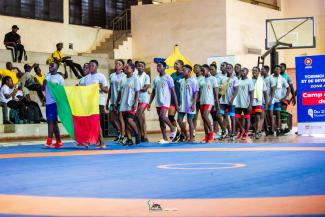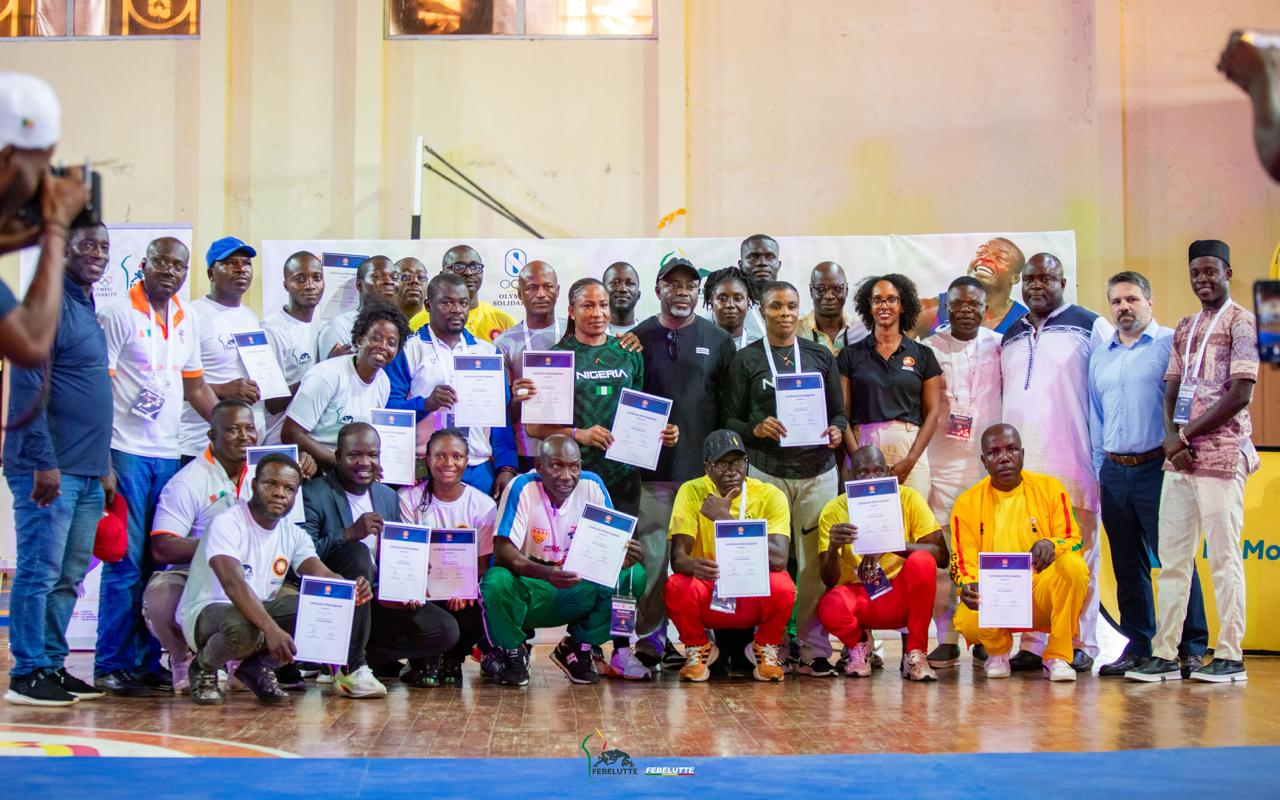China Wins Women’s Team Title as Japan Stumbles
Saturday, June 17, 2017 - 13:36 By Tim Foley

Team Japan headed into Saturday night’s finals at the Asian Junior Championships in Taiching, with three chances for gold, but when the curtain came down on the night’s finals world’s most dominant women’s wrestling nation would be left holding a trio of silver medals.
The gold medal finals kicked off at 48kg where Chihiro SAWADA (JPN) seemed to have the upper hand on China’s Jiang ZHU (CHN) late into the second period, holding steady with a 2-0 lead and controlling the tie-ups. But the Chinese wrestler closed the distance and kept up her attacks to find a high double leg late to snag the equalizing takedown. After a scramble and challenge by Sawada the final score tallied, 4-2 in favor of Zhu.

The two nations battled again in the 55kg final with Jing LIANG (CHN) taking on Tomoha UCHIJO (JPN) in a thrilling back-and-forth contest. The match got off to a slow and defensive start, but in the second period Liang and Uchijo traded takedowns, turns and lifts for a total of three lead changes. Liang sealed the match late with a late hi-crotch and lift for two that sealed China’s second gold medal of the night.

Japan’s final hope for gold came with Misuzu ENOMOTO facing off against Aina TEMIRTASSOVA of Kazakhstan. The taller Temirtassova had spent the day throwing her opponents and off the whistle pummeled in for position. Enomoto staved off the Kazakh’s attack for the first period, but in the second Temirtassova managed to launch Enomoto for a 4-1 lead.
The Japanese middleweight fought back, striking on an outside single to make the match 4-3 heading into the final minute, but Temirtassova held strong, winning the match 5-3 and keeping Team Japan off the top of the podium.
Tsetsegbayar BYAMBADORJ (MGL) took the 72kg final over Chuchu YAN (CHN) via forfeit.
China took the team title with 73 points followed by Japan with 56 and India with 52.

Mongolia Goes One for Two in Freestyle Finals
They might have been the smallest competitors, but Nasanbuyan NARMANDAKH (MGL) and Darkhan KALKENOV (KAZ) provided giant action during the 50kg finals Saturday night in Taichung. The pair combined for more than 30 points in one of the most awe-inspiring and energetic displays of offense this year.
After six minutes of throws, trips, takedowns and reversals it was Narmandakh who would prevail 17-13.

At 120kg Khasanboy RAKHIMOV (UZB) cemented his position as world’s best heavyweight prospect with a crushing thirty second pin against Mongolia’s Lkhagvagerel MUNKHTUR. The Uzbek bruiser is expected to compete at the Junior World Championships this August in Finland.



Share your thoughts.
Comments